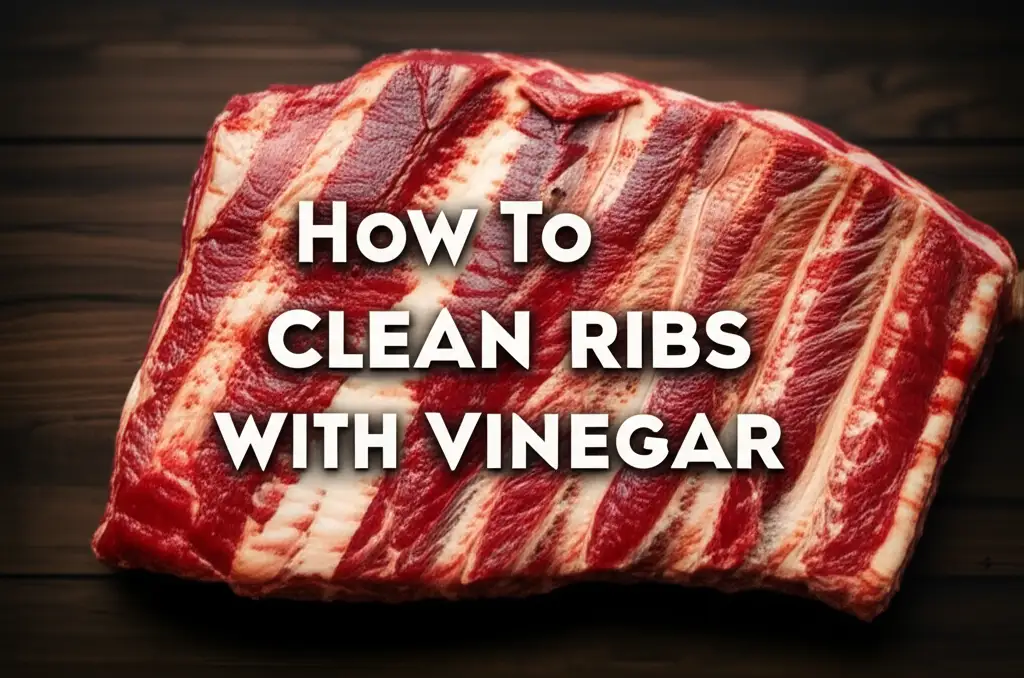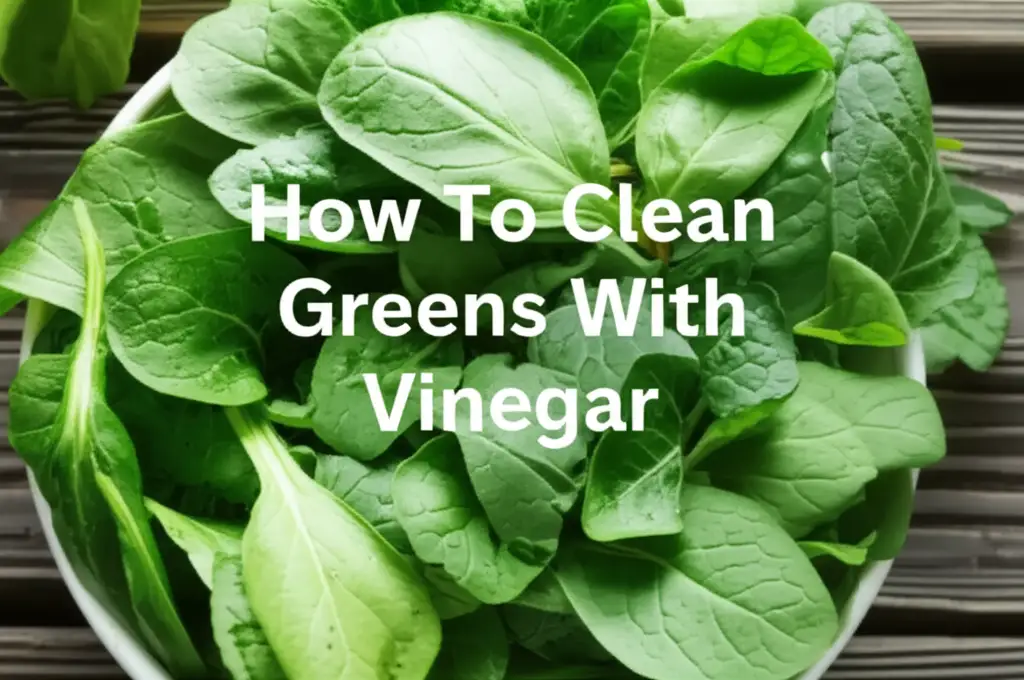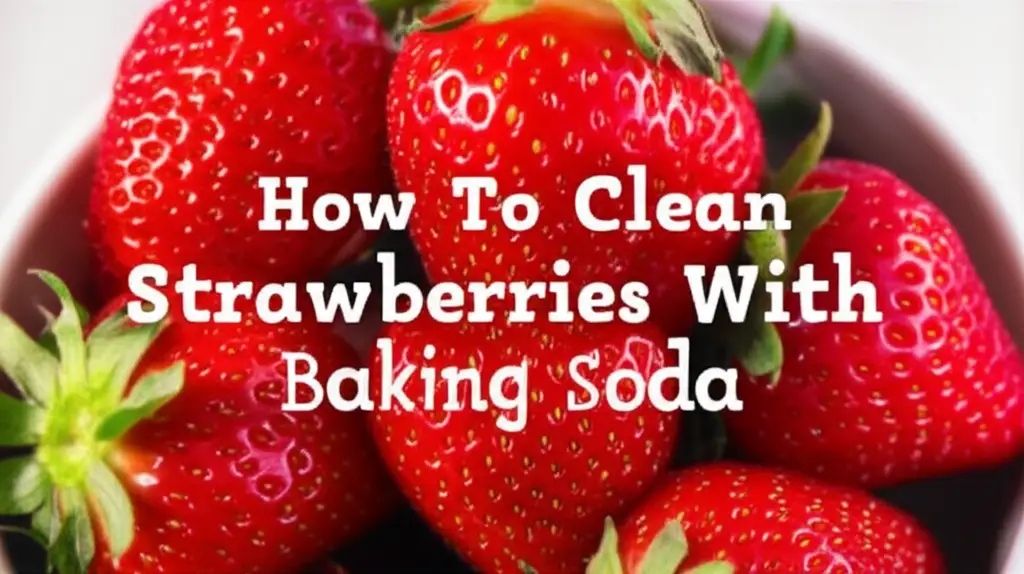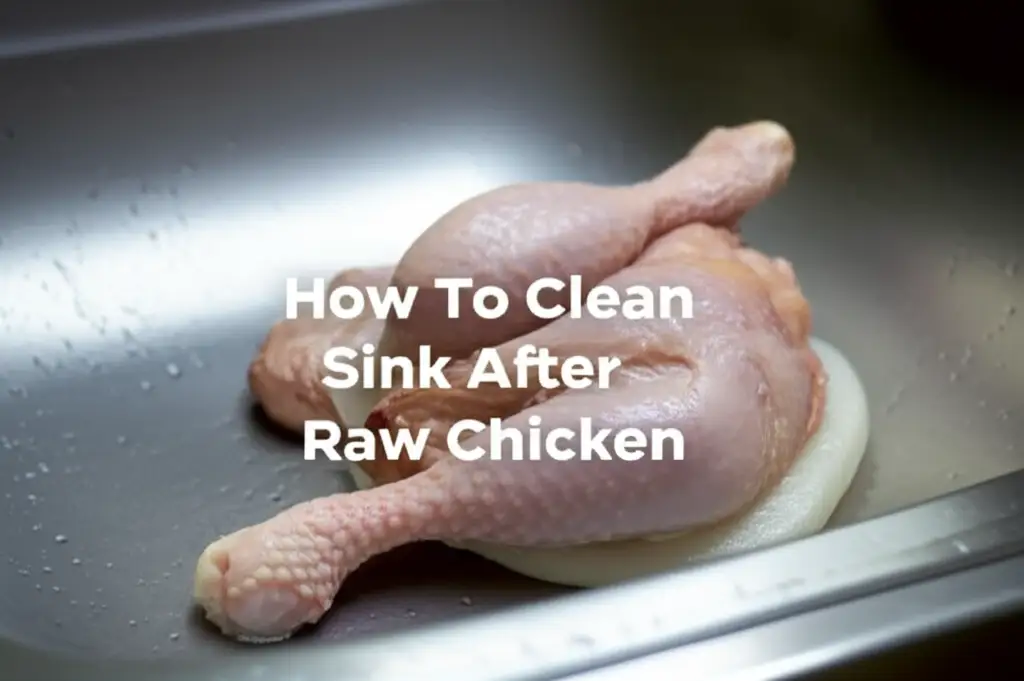· Kitchen Cleaning · 9 min read
How To Clean Ribs With Vinegar

Cleaning Ribs with Vinegar: Your Essential Guide
Have you ever wondered about the best way to prepare ribs for cooking? Many people focus on marinades or rubs. Before that, proper cleaning is important. Cleaning ribs with vinegar offers a simple, effective method. It helps remove impurities and prepare the meat. This guide will show you how to use vinegar for cleaner, safer ribs. We will cover the benefits, step-by-step instructions, and important safety tips. Get ready to enhance your rib-cooking experience.
Takeaway
- Use white vinegar to clean ribs before cooking.
- Vinegar helps remove surface impurities and reduces strong odors.
- Always rinse ribs thoroughly with cold water after vinegar treatment.
- Maintain strict kitchen hygiene when handling raw meat.
Clear and Concise Answer
You can clean ribs with vinegar by rinsing them, applying a dilute vinegar solution, gently rubbing the surface, and then thoroughly rinsing with cold water. This process helps remove surface impurities and reduces any strong odors, preparing the ribs for cooking.
Understanding Why to Clean Ribs with Vinegar
Cleaning ribs is a key step in food preparation. People often debate if raw meat needs cleaning. For ribs, a quick clean helps. It removes bone fragments and loose tissue. It also washes away any packaging residue. Vinegar adds an extra layer of benefit to this cleaning process. Its mild acidity helps in several ways.
Vinegar is a natural cleaning agent. It is known for its ability to cut grease and tackle odors. When you clean ribs with vinegar, you use these properties. The vinegar helps to lift away surface contaminants. It also works to neutralize strong meat odors. This leaves the ribs smelling fresh and ready for seasoning. This step is about preparing your food thoughtfully. It helps ensure a better cooking outcome.
Step-by-Step Guide to Cleaning Ribs with Vinegar
Cleaning ribs with vinegar is a straightforward process. You need only a few items. These items include white vinegar, cold water, and a clean workspace. Following these steps ensures your ribs are properly prepared. This method is safe and effective for home cooks. I find this simple routine makes a big difference.
Preparing Your Workspace
First, clear your kitchen sink and countertop. You want a clean, sanitized area. This prevents cross-contamination. Lay out paper towels or a clean mat. This helps contain any mess. Get all your tools ready before you start handling the ribs.
The Vinegar Solution
Next, prepare your cleaning solution. I use a mix of equal parts white vinegar and cold water. For example, use one cup of vinegar and one cup of water. You can pour this into a clean spray bottle. Or, you can use a bowl for dipping. This diluted solution is effective yet gentle. It will not alter the meat’s texture. For general kitchen cleaning, a similar vinegar and baking soda solution is also powerful.
Cleaning the Ribs
Now, it is time to clean the ribs. Place the rack of ribs in your clean sink. You can also use a large, clean bowl. Spray the vinegar solution over the entire surface of the ribs. If using a bowl, gently submerge the ribs. Let the ribs sit in the solution for about 30 seconds to one minute. Do not soak for long periods. Longer soaking can affect the meat.
Rinsing and Drying
After the brief vinegar treatment, rinse the ribs thoroughly. Use cold, running water. Make sure to rinse all sides of the ribs. You want to remove all traces of vinegar. This is important for taste and texture. I always rinse until the water runs clear. Pat the ribs dry completely with paper towels. Dry ribs allow rubs and seasonings to stick better. This step also prevents steaming during cooking. For similar food cleaning tips, you might find how to clean greens with vinegar useful.
Benefits of Using Vinegar for Rib Preparation
Using vinegar to clean ribs offers several advantages. Beyond simple cleanliness, it contributes to better food quality. Many chefs value these subtle improvements. I have noticed a positive change in my own cooking. Vinegar’s properties make it a valuable tool.
One major benefit is odor reduction. Raw meat can sometimes have a strong, sometimes unpleasant, smell. Vinegar’s acetic acid helps neutralize these odors. It does not mask them; it truly breaks them down. This results in fresher-smelling ribs. This allows the natural aroma of the meat to come through. This also lets your seasonings shine.
Vinegar also helps remove surface impurities. During packaging and transport, small bits can adhere to the meat. These might include bone dust or tiny fragments. A quick wipe with vinegar solution helps dislodge these. It creates a cleaner surface. This means a more pleasant eating experience. It also means you are cooking on a clean canvas. This contributes to better overall food safety practices in your kitchen. Just as you might clean other kitchen appliances, maintaining clean meat is crucial. For example, cleaning your dishwasher with vinegar and baking soda also contributes to overall kitchen hygiene.
Safety and Hygiene When Cleaning Ribs
Handling raw meat requires strict attention to safety. This is true whether you clean ribs with vinegar or not. Preventing cross-contamination is critical. Bacteria from raw meat can spread easily. These bacteria can cause illness if not handled correctly. Always prioritize hygiene in your kitchen.
First, use separate cutting boards and utensils. Designate one cutting board for raw meats. Use another for vegetables or cooked items. This simple practice prevents bacteria transfer. I keep my meat board clearly marked. Wash your hands thoroughly before and after handling ribs. Use warm water and soap for at least 20 seconds. This is a basic but very effective rule.
Clean all surfaces that touch raw meat immediately. Use hot, soapy water. A sanitizing spray can also be helpful. Vinegar is a good natural cleaner, but it is not a strong disinfectant for all bacteria types. For comprehensive cleaning of surfaces like your sink drain, consider regular maintenance. If you use a spray bottle for your vinegar solution, label it clearly. Do not use it for other purposes without proper cleaning. Keep children and pets away from the raw meat preparation area. These steps ensure a safe cooking environment. They protect you and your family.
Common Questions About Cleaning Ribs with Vinegar
People often have questions about using vinegar for food. It is good to be informed. Here are answers to common queries regarding cleaning ribs with vinegar. I want to address any concerns you might have.
Can I Use Any Type of Vinegar?
White vinegar is the best choice for cleaning ribs. It has a neutral flavor and clear color. This means it will not impart any taste or stain the meat. Apple cider vinegar also works, but it has a stronger smell and slight color. It might leave a faint apple scent. Avoid flavored vinegars, as they will definitely affect the taste of your ribs. Stick to plain white vinegar for optimal results.
Does Vinegar Kill All Bacteria on Ribs?
Vinegar helps reduce some bacteria on surfaces. Its acidic nature is effective against certain types. However, vinegar does not kill all bacteria. It is not a complete disinfectant for raw meat. Cooking ribs to the correct internal temperature is the only way to kill harmful bacteria entirely. Use vinegar for surface cleaning and odor control. Rely on proper cooking for food safety.
Will Vinegar Make My Ribs Taste Sour?
No, if you rinse properly, your ribs will not taste sour. The key is the thorough rinse with cold water after the vinegar application. This removes all vinegar residue. The purpose of the vinegar is a quick surface clean. It does not penetrate deep into the meat. If you rinse well, your ribs will absorb the flavors of your rub and sauce, not vinegar.
Can I Soak Ribs in Vinegar for a Long Time?
You should not soak ribs in vinegar for a long time. A brief contact, 30 seconds to one minute, is enough. Soaking for too long can change the texture of the meat. It can make the meat tough or mushy. It can also impart a strong vinegar flavor. Quick application and immediate rinsing are essential for the best outcome.
Are There Alternatives to Vinegar for Cleaning Ribs?
Some people rinse ribs only with cold water. This removes loose fragments and residue. Others might use a light saltwater solution. Some home cooks prefer no rinse at all, simply patting the ribs dry. Vinegar provides an extra step for odor reduction and surface cleanliness. It is a popular option because it is natural and effective. Your choice depends on your preference for meat preparation.
Post-Cleaning Care and Kitchen Hygiene
After cleaning your ribs with vinegar, proper kitchen cleanup is essential. This extends your efforts for food safety. A clean kitchen prevents the spread of bacteria. It also makes your cooking space more pleasant. I always follow a routine after handling raw meat.
Start by washing all tools and surfaces. Use hot, soapy water. This includes cutting boards, knives, and any bowls used. If you have a dishwasher, place items there for a thorough clean. Hot water and detergent are effective at breaking down grease and killing germs. Think about cleaning beyond the immediate area. Your ice maker also benefits from regular cleaning with vinegar, for example, ensuring your ice is always fresh and clean.
Wipe down your countertops, sink, and faucet handles. These areas may have come into contact with raw meat or contaminated surfaces. Use a sanitizing spray or a bleach solution. A spray bottle with diluted vinegar can also work for general wipedowns. Always use separate cloths for cleaning meat areas and other kitchen surfaces. Wash these cloths immediately or dispose of them. This prevents cross-contamination. Remember to wash your hands again after all cleanup is done. This full cycle of cleaning ensures your kitchen remains safe and ready for the next cooking adventure.
Conclusion
Cleaning ribs with vinegar is a simple, effective step for better food preparation. This method helps remove surface impurities and reduce strong odors. It sets the stage for delicious, well-prepared ribs. Remember to use white vinegar and rinse thoroughly. Always prioritize kitchen hygiene. This means washing hands, sanitizing surfaces, and preventing cross-contamination.
By incorporating this easy process into your routine, you ensure cleaner ribs. You also contribute to a safer cooking environment. Your efforts will result in more flavorful and enjoyable meals. Take pride in your food preparation. Make cleaning ribs with vinegar a part of your cooking success. Start using this tip today for your next rib dish.
- vinegar cleaning
- meat preparation
- food safety




